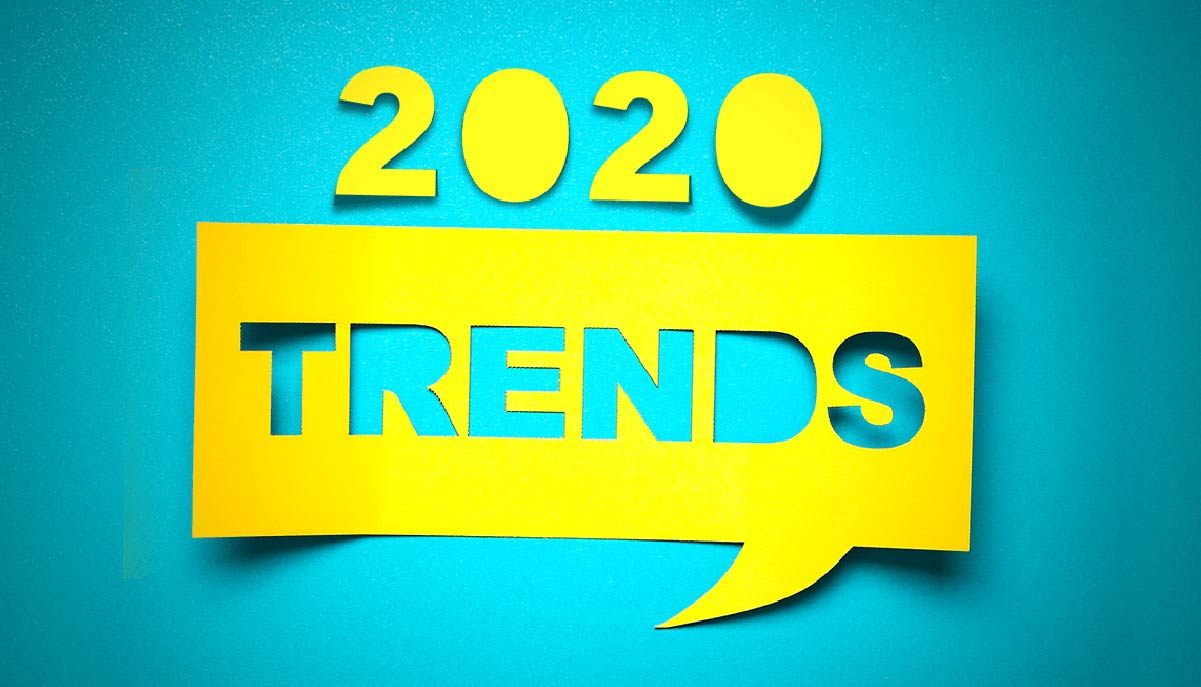
2020 eCommerce Trends
Here we are, less than two weeks away from the start of a new decade. While we may not feel any different waking up on January 1, the beginning of 2020 signals an era of transition. From eCommerce operations to consumer preferences, the retail industry will quickly need to become accustomed to change. Innovations in technology have helped improve fulfillment efficiency, which has led to a corresponding effect on consumer expectations. Yet, with global, political and financial uncertainties hanging in the balance, many in the retail industry are left wondering what’s next.
Despite mounting concerns towards 2020, consumer spending is on the rise and shows no signs of slowing down. Global eCommerce sales are anticipated to hit $3.46 trillion by the end of the year, up 17.9 percent from 2018’s figure of $2.93 trillion. (1) Further, by 2022, eCommerce sales are expected to reach $892 billion in the US alone. (2) Online shopping is increasing for a multitude of factors. To gauge some of these causes and see where the retail industry is heading, explore our predictions below.
Personalizing the Customer Experience
Consumer preferences are rapidly changing. From marketing and customer acquisition to checkout and fulfillment, shoppers are expecting a seamless and personalized experience. Convenience and immediacy have become key to removing friction from the customer journey as well. As social commerce continues to grow, consumers expect a targeted message on Instagram where they can purchase goods with the click of a button. Additionally, more options are preferred when it comes to order fulfillment as we are seeing with the rise of Buy Online Pick Up In-Store (BOPIS).
The answer to solving the personalization dilemma lies in data. Retailers that are able to both harness and analyze data will be able to make the calculated decisions to improve their customer experience and give shoppers the personalized process they desire. However, only 27 percent of global retail and wholesale purchase influencers say that improving the use of data insights is currently a top priority. (3) Artificial intelligence and machine learning tools can help dissect the data retailers receive, but it starts with the desire and capability of getting smarter about customer experience.
Sustainability Becomes a Priority
What used to be a differentiator for certain brands is now becoming industry commonplace. According to Forrester, 54 percent of US online adults believe companies should improve local communities, 51 percent like to buy environmentally-friendly products and 46 percent like to buy products that are made locally. (3)
Taking an environmentally-friendly stance is not just a nice thing for brands to do, but rather expected in 2020. The textile sector still represents 6 percent of global greenhouse-gas emissions and 10 to 20 percent of pesticide use, while solvents and dyes used in manufacturing are responsible for one-fifth of industrial water pollution. (4) 2020 marks the decade of responsible retail, where socially conscious consumers will embrace brands that are proactive about cutting down on waste and using sustainable materials and processes.
Health, Wellness and Everything in Between
What many have thought was a fad is now becoming a driving force in the retail sector. Brands (large are small) have started to tap into health and wellness, an industry segment that is on the rise. Tech giants are looking to get a part of the action with the new Apple Watch and Google’s recent acquisition of the health-focused wearable, Fitbit. As consumers prioritize health, retailers will follow suit. Simultaneously, retail enterprises like Walmart, Amazon and Best Buy have jumpstarted the race into the healthcare space. From an improved focused on senior-health products to testing branded clinics to improve consumer health education, big-box retail brands are seeing a significant opportunity in healthcare moving forward.
All the while, the rise of CBD has moved beyond skepticism to major market adoption. Sales from CBD-based products are expected to increase by 700%, making it a near $5 billion market. (5) With a variety of retailers (from lifestyle and beauty to food and beverage) infusing CBD within their products, this is a trend to keep top of mind in the year ahead.
While the future of eCommerce can yield many uncertainties, one trend stands out. Success is inherently tied to anticipating the changing preferences of consumers and delivering an experience consistent with their wants and needs. While the 2020 shopper may be looking for health and environmentally conscious products, the desires of the shopper five years from now will likely differ. For online retailers, remaining educated and adaptable to the oncoming industry changes is a great way to get ahead in the new year.
- https://www.digitalcommerce360.com/article/global-ecommerce-sales/
- https://www.cbre.us/real-estate-services/real-estate-industries/omnichannel/the-definitive-guide-to-omnichannel-real-estate/by-the-numbers/how-high-will-e-commerce-sales-go
- https://www.forrester.com/report/Predictions+2020+Retail/-/E-RES157606
- https://www.mckinsey.com/industries/retail/our-insights/the-state-of-fashion-2020-navigating-uncertainty
- https://stores.org/2019/12/02/coming-soon/


